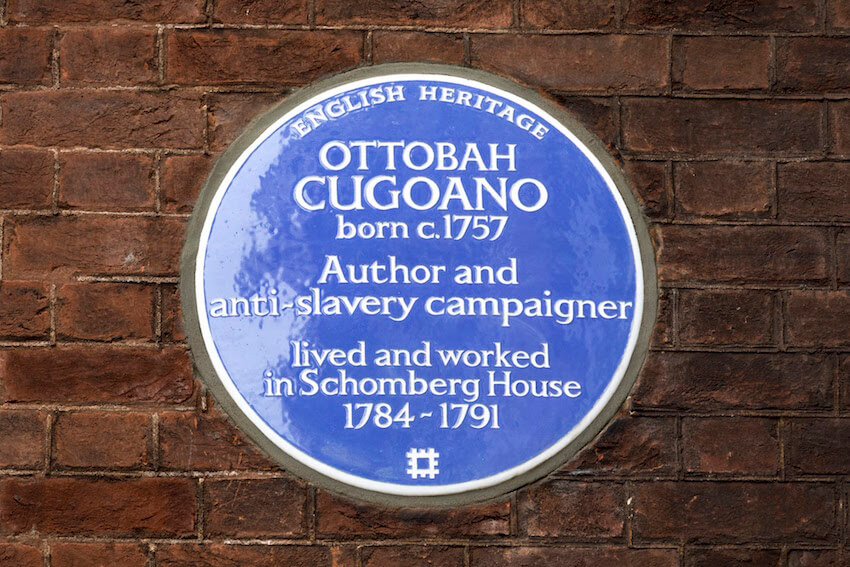THE 18TH Century anti-slavery campaigner Ottobah Cugoana has been commemorated with a blue plaque, making him the earliest black person to be recognised in this way.
Cugoana, who was one of the first formerly enslaved people to write and publish a text in the English language, has been remembered with a blue plaque at Schomberg House, Pall Mall. Shomberg House is where he lived and worked as a servant between 1784 and 1791.
Cugoana was born on the coast of what is now Ghana. He was kidnapped by slave traders while playing in a field with other children and sold to Europeans.
Slave traders transported Cugoana to the West Indies. In his writing, he tells how captives on board the ship, which travelled through the Middle Passage, tried to sink the boat to escape being enslaved.
After working on plantations in Grenada and other islands in the Caribbean for two years, a prominent slave owner named Alexander Campbell took Cugoana to England in 1772.

Cugoana attended school in England and used the skills he gained from his education to campaign for the abolition of slavery.
English Heritage blue plaques panel member, British-Nigerian historian, broadcaster, author and Professor of Public History at University of Manchester, David Olusoga, said: “Ottobah Cugoano was a remarkable man, one who himself had known the horrors of slavery. Having survived he used words and arguments to fight against the slave trade and slavery.
He added: “I am delighted that English Heritage is celebrating his life with a blue plaque.”
Cugoano’s book, Thoughts and Sentiments on the Evil and Wicked Traffic of the Slavery and Commerce of the Human Species, Humbly Submitted to the Inhabitants of Great-Britain, was published in 1787.
It is one of the first anti-slavery books written by a black person to be published in Britain and is described as “the most radical of the era in its arguments”.
The book features Cugoano’s autobiographical testimony as well arguments spanning philosophy, religion and the economy.
Speaking today on BBC Radio 4’s Today Programme, Olusoga described Cugoano as a critical figure in Black Georgian London.
He said: “Those Africans who had experienced slavery personally, their testimony was of acute importance and so books like that by Cugoano were enormously influential.”
Currently only 4 per cent of the 950 plus blue plaques across the capital are dedicated to historical black and Asian figures.
Cugoano’s blue plaque was one of a number of “cold cases” reopened by the English Heritage’s blue plaques team and the BAME working group, which it set up advise on improving diversity within the scheme.


Comments Form